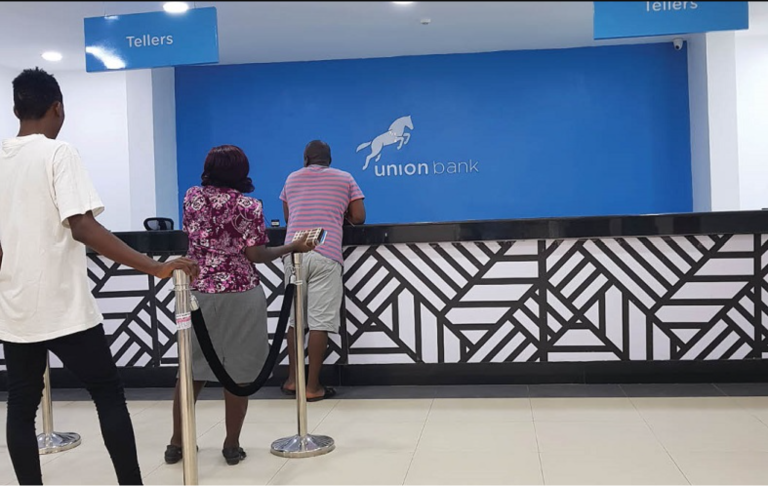The renowned rating agency, Fitch Ratings, has said that increased regulatory actions or funding instability may lead to a downgrade rating for Union Bank of Nigeria.
In its latest rating of the bank, it placed Union Bank’s ratings on a ‘Rating Watch Negative’, a significant move that highlights the bank’s current challenges following an intervention by the Central Bank of Nigeria (CBN).
Specifically, the bank’s Issuer Default Ratings (IDRs), Viability Rating (VR), and National Ratings are under the microscope for a possible downgrade. However, UBN’s Government Support Rating of ‘no support’ is not affected by this latest rating action.
Hinting at a possible downgrade in the coming months, it said:
- “A downgrade (and potential resolution of the RWN) could result from further regulatory intervention, e.g. imposition of restrictive measures on UBN’s activities, fines or other regulatory findings (such as weaker asset quality than initially reported by UBN), that would lead to large losses and erosion of the bank’s capital.
- “The downgrade could also result from UBN’s funding instability, i.e. due to a deposit run or where additional liquidity sources become unavailable to the bank.”
It, however, noted that a downgrade can be avoided if there are no further regulatory interventions or financial profile implications under the new management of the bank.
Reason for the latest rating
A negative watch signifies that the agency has observed one or more conditions that could lead to a downgrade of the bank’s credit rating soon.
Justifying the negative watch rating, the agency said:
- “The RWN follows the Central Bank of Nigeria’s (CBN) announcement on 10 January that it had dissolved the board and management of three Nigerian banks, including UBN, as a result of regulatory non-compliance, corporate governance failure, disregarding the conditions under which banking licenses were granted and involvement in activities that pose a threat to financial stability, among other infractions.
- “The CBN has since appointed new executives, including chief executive officers, to oversee the affairs of the banks.
- “The RWN reflects the uncertainty surrounding the background to the CBN’s intervention, the potential for further regulatory actions and the negative implications for UBN’s standalone credit profile, particularly relating to corporate governance risks and liquidity pressures arising from potential funding instability.
- “Fitch expects to resolve the RWN within six months once there is more certainty regarding the CBN’s intervention and the implications for UBN’s standalone credit profile.”
More Insights
The CBN earlier announced that it had dissolved the Board and Management of three prominent banks — Union Bank, Keystone Bank, and Polaris Bank over the banks’ non-compliance with critical regulatory provisions.
The apex bank also announced a new appointment of executive officers for Union Bank, Keystone Bank and Polaris Banks following the dissolution of the board of the banks on Wednesday.
In a recent revelation by a special investigation into the CBN’s operations, the former governor of the apex bank, Godwin Emefiele, was implicated in allegations of clandestinely acquiring banks through undisclosed proxies.
The investigative report alleges that Emefiele utilized proxies to orchestrate the acquisition of Union Bank of Nigeria for Titan Trust Bank Limited and Keystone Bank, with no apparent evidence of financial transactions to support these acquisitions.
In light of these findings, the report has put forth a recommendation urging the Federal Government to intervene by reversing the sales of these banking institutions and assuming direct control.
This development not only casts a shadow on the corporate governance practices within these banks but also raises significant concerns over the safety and management of the substantial customer deposits they hold.
All these occurred barely two months after Union Bank was delisted from the Nigerian Stock Exchange.
The new rating means that Union Bank needs to navigate carefully through Nigeria’s challenging financial climate, especially regarding the allegations contained in the CBN special investigator’s report.
The bank’s ability to manage these risks and safeguard its financial health will be crucial in the coming months.

